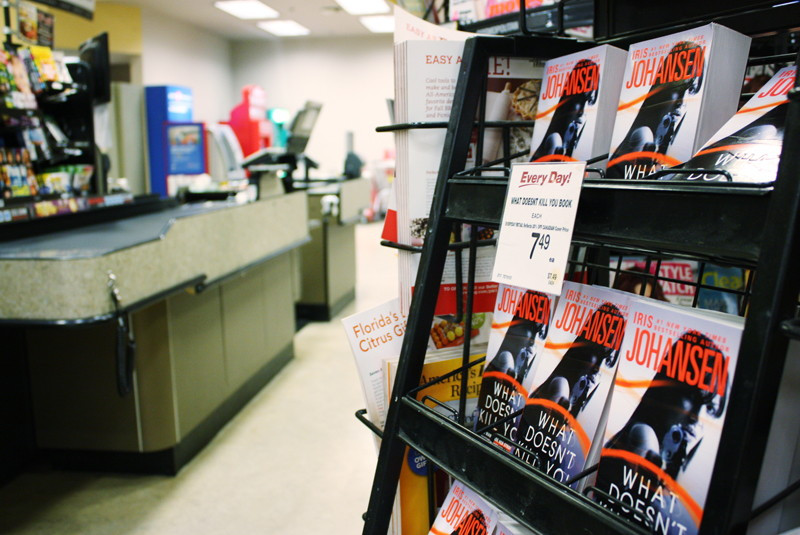Is popular literature destroying our culture in unprecedented ways, or have we seen it all before?
On the shelves of grocery stores, gas stations and airport newsstands, amid the nearby copies of Cosmopolitan, they find their homes.
Judged, and condemned even, by the sidelong glances and upturned noses of passersby.
Well, judged and condemned by those, among us, deserving of the label “snob,” anyways.
These texts are sold where they are, due to sales-proven appeal, to individuals who might not frequent bookstores, but still want the occasional read.
Whether it’s Harry Potter, The Hunger Games , the latest Tom Clancy novel or something by Jodi Picoult, the reception of mega-successful commercial books by various demographics are hardly unpredictable.
If the masses go nuts for it, it seems, the literary-types are less inclined to follow suit.
But are the laments of the latter warranted, when declaring that “low-brow” super-sellers represent a decline in the overall quality of popular literature? Is it really possible that, as a collective culture, we’ve had our reading tastes spoiled by the mass commercialization of the written word?
Dr. Andrew Burke, an English professor who teaches a course on Victorian and Edwardian literature at the University of Winnipeg, says that some clues to unraveling the truth about popular contemporary texts might be found in the past.
A boom era for relatively widespread reading culture in the West - in parts due to the growth of a middle-class and the rise of the novel as a popular literary form - the Victorian Era acts as an appropriate “way-back-when” comparison to our own time in terms of popular literature.
“If there’s a lesson that the Victorian period teaches us about popular texts, it’s that (what ends up being popular) is just wildly unpredictable,” says Burke.
Citing the example of Mary Elizabeth Braddon’s Lady Audley’s Secret- a sensational novel that held a decidedly low-brow status despite its popularity when it was published in 1862 - Burke noted that, sometimes, perception of a literary work can undergo a shift over time.
According to Burke, Lady Audley’s Secret is now “increasingly one of the most popular texts to teach in Victorian period (university) classes.”
Other examples of texts that, though once thought salacious or - gasp - “common” in their own times and now enjoy the approval of the bearded tweed-clad the world over, are easy to come by.
Lolita, Vladimir Nabokov’s 1955 novel in which the main character is a pedophile who kidnaps and subsequently abuses the 12-year-old daughter of a woman he marries (then murders), certainly fits the bill for the prior category.
While not universally panned by critics at the time of its publication, it was referred to by one reviewer as “sheer unrestrained pornography”- after which point, it met record sales in the U.S. in its first few weeks on the market.
Did all those people rush out to buy it because they heard about its sharp, witty style, and dazzling prose, or because it sounded racy? You decide, Fifty Shades of Grey generation.
Either way, Lolita is now widely considered one of the best novels of the 20th century.
Charles Dickens, easily the Victorian era’s most famous writer, enjoyed immense popularity in his time - his novels were ferociously consumed by the masses of newly literate middle-class Brits - but was praised much more sparingly by contemporary critics and peers. Oscar Wilde, William Wordsworth and Henry James were among those who vocalized their lackluster assessments of the popular writer.
So, have we really entered a new era of literary decline brought about the rabid popularity of “low-brow” books, or do we simply fail to sense the merry-go-round of history turning beneath us; repeating the same cultural trends in new form?
“The lesson in this regard is that you shouldn’t try to out-guess history,” says Burke.
“You never quite know what rehabilitations (of texts) are going to happen further down the road, and it’s likely that they’ll happen to the most unexpected things.”
Better get your kids started on Twilight early - one day they might need it for their master’s thesis.
Published in Volume 67, Number 4 of The Uniter (September 26, 2012)







